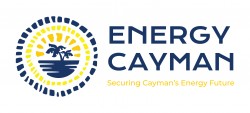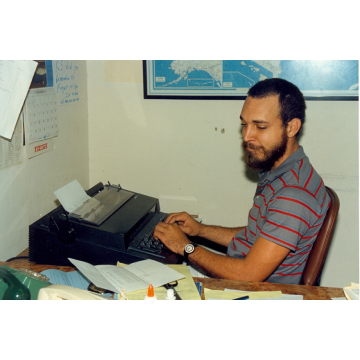News
Government full steam ahead with implementation of National Energy Policy

This month sees a step forward for sustainability in the Cayman Islands as the Ministry of Commerce, Planning and Infrastructure (CPI) launches a new public education campaign for its National Energy Policy, Energy Cayman.
The vision of the campaign is to promote energy efficiency and conservation methods to residents and businesses in the Cayman Islands, encouraging a sustainable lifestyle through responsible and innovative energy supply and consumption.
While the word ‘energy’ may evoke a sub-conscious association with electricity in our minds, it is important to note that the concept of energy actually covers a much broader spectrum of the community. The way we produce and consume energy is relevant in many different aspects of our daily lives, and it is essential for us to plan towards a more sustainable future across the board.
Through the launch of the Energy Cayman Campaign, the National Energy Policy will be addressing the first goal on their action plan, Knowledge and Education. The intention of the public education campaign is to create awareness and equip the community with a better understanding of how energy is supplied and consumed in Cayman, and the goals that have been put in place to improve on these processes.
Originally drafted in 2013 and adopted by Cabinet in 2017, The National Energy Policy has been an ongoing project for the Ministry of CPI for a number of years. With the support of the Government, the policy was initiated as a form of recognition for the importance of sustainability, and a step towards prioritising development in this field.
The multi-faceted National Energy Policy consists of 99 different strategies spanning across a wide variety of sectors such as: electricity; fuels; transportation; land use and buildings; water and wastewater; public education and awareness; and climate change and the environment. The policy has developed these strategies to create a tangible plan for a more sustainable lifestyle through responsible energy supply and consumption in Cayman. For more details on these strategies, or to read the full policy, visit www.energy.gov.ky.
Minister of Commerce, Planning and Infrastructure, Hon. Joey Hew, has welcomed the drive to increase public awareness of the National Energy Policy. Minister Hew noted that it cannot be business as usual if the Cayman Islands are going to achieve the targets set out in the policy. “For us to achieve the targets set out in the National Energy Policy, we will require concerted efforts by all stakeholders, and from every area of our economy that consumes energy. An important component of those efforts will be increasing education on various aspects of the policy so that the general public will have a better understanding of the framework government is using, and therefore make choices that will reduce their own greenhouse gas emissions,” he stated.
One of the main focusses of the policy is to support energy security by reducing the reliance on imported fossil-based fuels in the Cayman Islands.
Kristen Augustine, Energy Policy Co-ordinator, commented, “The Cayman Islands is heavily dependent on imported fossil fuels for energy needs, with water, electricity and transport all reliant on imported oil. In 2014, only 0.9% of electricity was generated by renewable energy sources, with 95% of utility scale electricity generated by diesel. There is therefore a great need for Cayman to transition from energy dependency to energy security.”
“Over the next few years we will be working with the whole Cayman population to ensure that everyone is able to contribute to a sustainable Cayman. From the transport choices we make, to our energy and water consumption, we all have a part to play in creating a better future for the Cayman Islands. We are committed to helping the population do that”, Mrs. Augustine said.
The Ministry had already committed to creating a more sustainable future for the Cayman Islands that is built upon energy security and a dependence on renewable energy sources. This year, Covid-19 has brought the world to a pause, giving the natural environment time to heal. The effects of the pandemic have inspired a renewed focus on sustainability in the Cayman Islands, creating an opportunity to re-ignite the National Energy Policy with the Energy Cayman campaign
The National Energy Policy has identified goals and high level targets to meet these heightened sustainability aspirations for Cayman. As a first step, the initiative is committed to ensuring the community is well educated and knowledgeable on the impact of energy demand on the environment through the launch of this public education campaign.
“The National Energy Policy sets out a detailed plan that will allow the residents and businesses of Cayman to join forces to create a sustainable future for our future generations. This can be achieved if we all work together. The Policy identifies four goals which, if met, will meet the aspirations of the people of the Cayman Islands and will secure our future”, Ms. Augustine said.
The four overarching goals included in the policy are:
Goal 1: Knowledge and Education
The people of the Cayman Islands will be well educated and knowledgeable on the impact of energy demand on the environment of the Islands and continuously embrace opportunities to increase the levels of sustainable energy solutions in the supply mix and improve efficiency in energy usage. The achievement of this goal has been set in motion with the launch of the Energy Cayman campaign.
Goal 2: Destination of excellence
The Cayman Islands will continually strive to demonstrate leadership in the development and implementation of innovative, well researched, environmentally sensitive, and sustainable energy opportunities where appropriate to small-island states and archipelagos.
Goal 3: Energy security
The Cayman Islands will have a modern energy infrastructure ensuring that energy supplies are produced and distributed competitively, safely, reliably, efficiently and affordably supported by a governance framework of effective and responsive regulation, fuel security, environmental sensitivity and sustainable development.
Goal 4: Socioeconomic and environmental sustainability
The Cayman Islands will foster and promote the development and application of existing and new technologies, practices in sustainable energy solutions and the development of a sustainable energy industry reflecting its commitment to the socioeconomic wellbeing of its people and to its international and local obligations relating to climate change and environmental sustainability.
In order to achieve these goals successfully, the Energy Policy Coordinator is undergoing extensive research to identify opportunities for innovation that are achievable and beneficial for Cayman. Substantial groundwork is underway to develop more sustainable solutions around the following action points:
o Implementing new building codes to improve sustainability and energy efficiency
o Utilising land more efficiently for building and development
o Installing sustainable and environmentally friendly utility scale solar farms
o Finding alternative fuel opportunities to replace diesel
o Developing infrastructure to accommodate more electric vehicles
o Identifying processes for the implementation of renewable energy
o Introducing green loans through banks to support solar installation
For further information on the National Energy Policy, you can visit www.energy.gov.ky. or follow @EnergyCayman on social media.












